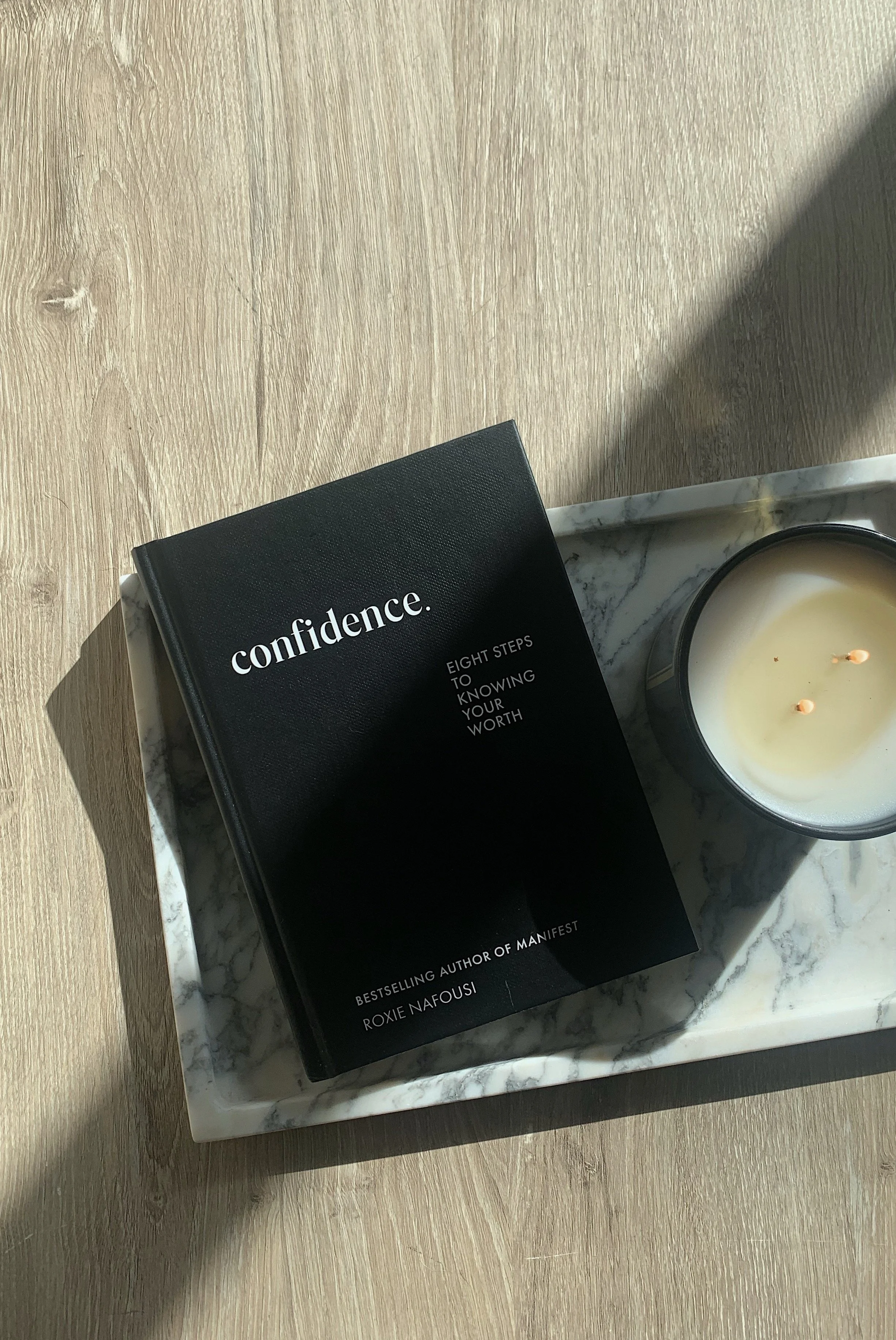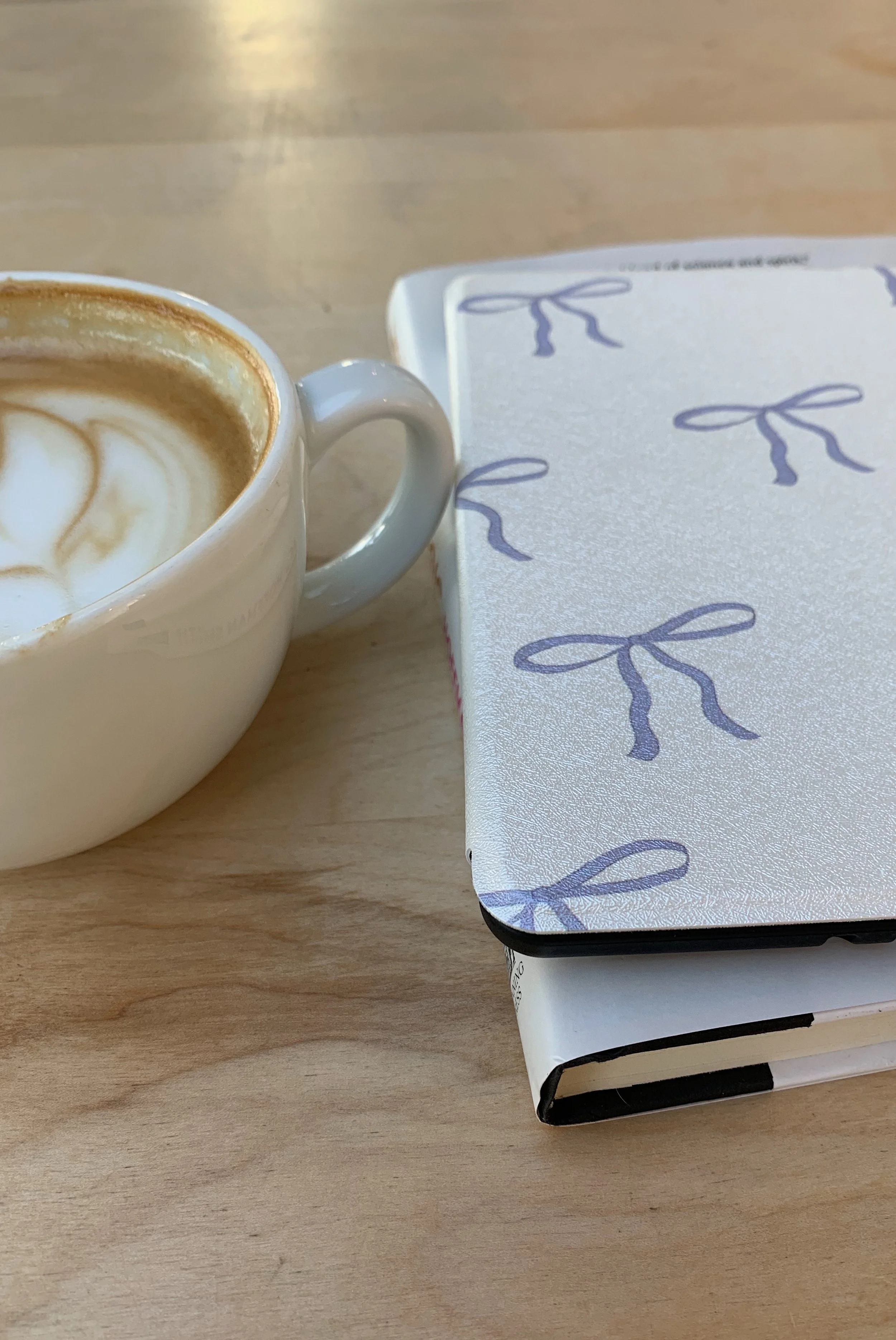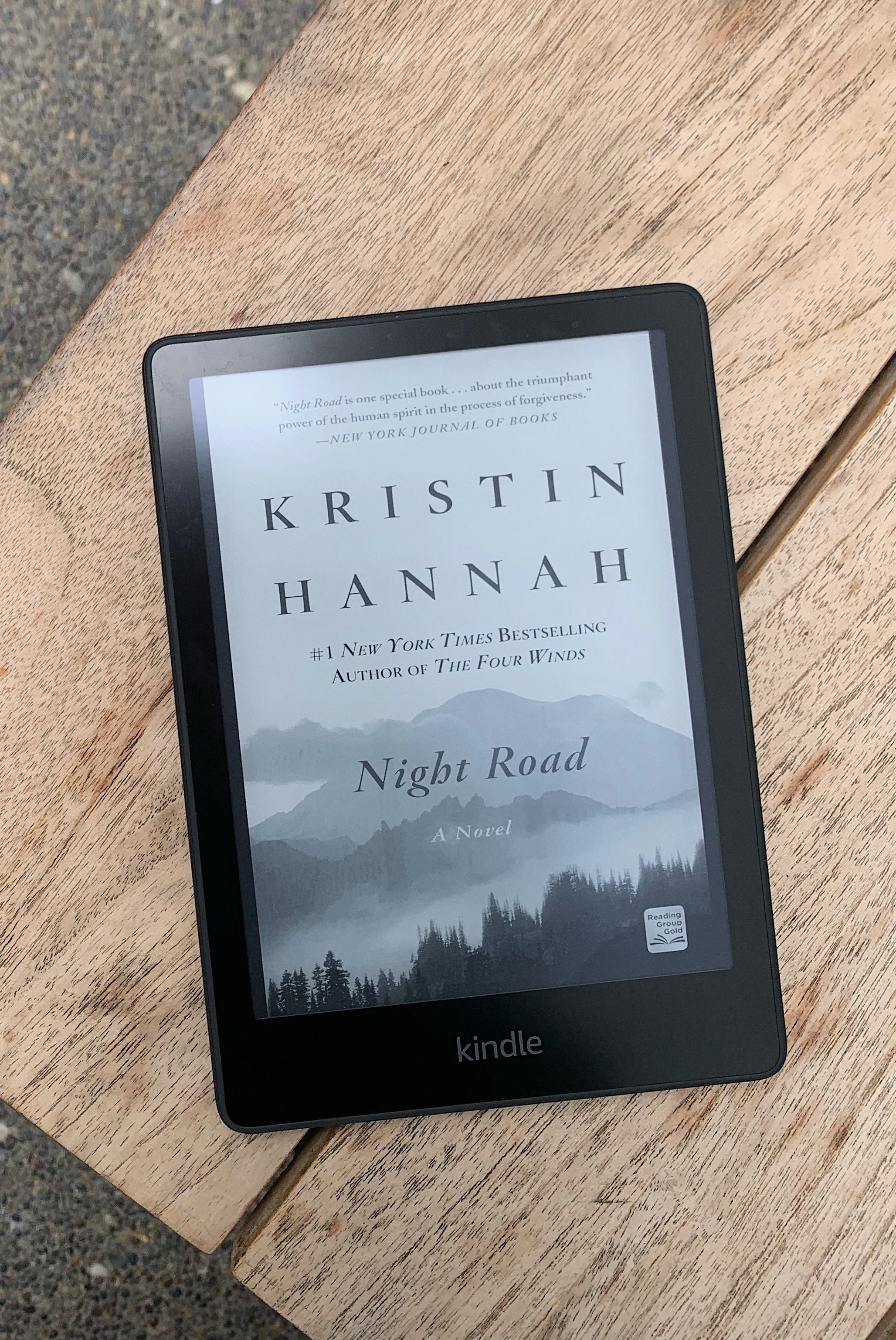What I Read in September 2025
Last month, most of my reading was committed to series, so this month I wanted to feel a bit freer and incorporate a variety of characters into my book picks. I still stuck with my general combo - thrillers and non-fiction - but these books were all picked the day of/ day before I started reading them. I don’t have as much time to read as I used to earlier in the year, but I’m still committed to my goal of 200 for the year. I do feel a little burnt out to be honest, but I enjoy the practice of staying committed and learning resiliency over quitting, even though this is meant to be one of my “fun” goals for the year. I ended the month with 146 books read - so stay tuned to see if I can finish 54 more books over the next 3 months.
what i read in september 2025
house of glass by sarah pekkanen
4/5 stars
I’ve had this thriller downloaded to my Kindle for a while, and I’m glad I finally got around to reading it. This actually stressed me out, and it definitely lives up to the hype and rave reviews.
It’s one of the few straightforward thrillers I’ve read lately. There’s only one POV, and it’s a mostly singular timeline, with just a few flashbacks.
My main critique is that some of the subplots felt a little unnecessary. I’m all for character development, but I just didn’t connect to anything outside of the main mystery.
There’s no last-minute crazy twist, but it’s gripping enough to hold your attention throughout. I highly recommend this one, and I have a feeling I’ll be adding it to my Best Thrillers on Kindle Unlimited post.
Read it here (free through Kindle Unlimited).
perfect soldiers: the 9/11 hijackers: who they were, why they did it by terry mcdermott
4/5 stars
I try to read at least 2 historical books every year, and I tend to gravitate towards 9/11 because I personally remember the day. This was well-researched, informative and very detailed. While it’s under 350 pages, there’s a lot of minutiae covered and it’s easy to get confused at times.
Some sections are stronger than others; I’d say the third and final section is a must-read. The narrative/ arguments presented came together nicely, the author’s writing shone, and I felt impacted as a reader.
Favorite quotes and takeaways:
Fun fact: “The U.S. government printed 32,000 matchbooks with [Ramzi] Yousef's photo on them and airdropped them into the country” to help find/ extradite him. Yousef was the mastermind of the 1993 WTF bombing, and was found in Pakistan. (p. 136)
“The September 11 attacks were by far the biggest thing [Al-Qaeda] had ever attempted, but even at that, the number of people involved in the plot could be counted by the handful. The scale helped keep it hidden.” (p. 222)
“Every FAA rule must pass a cost-benefit analysis before being enacted. For many years, the FAA had employed more economists than security inspectors. The main reason the FAA did not — and does not — incorporate the State Department's watch list into its own security lists is the belief that the airlines would either be unwilling, because of cost, or unable, because of cost, to check it.” (p. 236)
Read it here (free through Kindle Unlimited).
the girls i’ve been by tess sharpe
4/5 stars
I’ve been wanting to read this for a while. This author is one of my favorites and her novel Barbed Wire Heart was my favorite book of 2024, so I had high hopes for this. Spoiler but not really: it did not disappoint! This was youthful, sharply written, clever, and enjoyable. You do have to suspend disbelief as it’s not a realistic, “could happen to anyone” type of story, but it’s not so Lifetime-y that you roll your eyes at it.
My main criticism is that this book, while entertaining on its own, mainly sets up for a bigger story, which is addressed in the follow-up, The Girl in Question. I read that as well (5/5 stars) and LOVED it. I highly recommend reading both books back-to-back because the second book jumps right in, and if you have a tendency to forget details like I do, it may take you a second to catch on.
Overall, I loved that this was a duo and not a drawn-out series. It’s a complete story, and has it all - action, adventure, suspense, heart, friendship, and self-growth. It’s written for teens, but I didn’t feel old reading it, and it would make a really good movie or limited series.
Read the first book here.
deeper than money: ditch money shame, build wealth, and feel confident AF by chloe elise
4.5/5 stars
This is a great starter finance book for Millennials/ Gen Z. It focuses on mindset as much as (if not more than) practical financial advice, so I recommend it if you have a lot of emotions surrounding money, especially if you’re someone who knows the steps to take (budget, invest, etc.) but they’re still not fully clicking or sticking long-term.
Key topics include spending in alignment, spending plans vs budgets, boundaries, and limiting beliefs. The analogies are fun yet impactful; I definitely had a few “a-ha” breakthroughs as I was reading.
Favorite quotes and takeaways:
Key formula for changing your limiting beliefs: “BTFAR: Beliefs >> Thoughts >> Feelings >> Actions >> Results, [as] It is the breakdown of how our beliefs impact the tangible results we are experiencing in our lives.” (p. 62)
This adds action, so you get out of your head and actually change.
Change your perspective to view it as a spending plan, not a budget, and recognize it as a blueprint, not the end-all solution. Similar to the app on your phone that will reroute your trip if you take a detour, your spending plan should be flexible and adaptable. Similarly, you also have to know where you’re starting in order to actually have a sense of direction (p. 175)
“Spending in alignment is the holistic approach to using your money in a way that is emotionally, mentally, and logistically aligned with who you are today and who you want to become in the future. It's used to elevate your current life and future life simultaneously.” (p. 210)
Read it here.
member of the family: my story of charles manson, life inside his cult, and the darkness that ended the sixties by dianne lake
5/5 stars
I’ve always been intrigued by the infamous Manson Family, especially because I grew up in southern California. I’ve seen most of the documentaries and read Helter Skelter, but had never heard/ read such an in-depth recollection by a former member. Author Dianne Lake was the youngest to join (age 14), and I was curious to learn about how she came into the cult so young. Check the TWs first; parts of this book are extremely dark, although it focuses more on the cult than the crimes.
The book as a whole is fascinating, and feels like a time capsule in some ways. I found myself questioning her parents’ decision-making a LOT, but when you consider her circumstances, it makes sense why she ended up with the cult (not justifying it!). What also stuck out to me is that her depiction of murderer Susan Atkins was blunt and unlikeable, harsher than her opinion of Manson at times.
I found certain themes to still be relevant today, which made me think a lot. For one, it was interesting to see the comparisons made between Manson’s “postulating” and modern-day manifestation. Second, many of the girls who joined the group were lonely, didn’t have a sense of connection or belonging, and suffered from low self-esteem, which left them vulnerable to Manson’s manipulation. Given how social media seems to fuel loneliness and isolation, this led me to consider the particular risks young people might face today.
Favorite quotes:
“Postulating was a way that Charlie demonstrated his magic. I could never figure out how he did it, but it seemed to work out just as he said it would. He taught us that if you imagine what you want and ask for it, it will come to you. I guess it was his version of ‘ask and it shall be given; seek and ye shall find,’ which I had heard about in church. He set it up as a test of our faith in him and in our own ability to make things happen. Today people in the new thought or new age movements call it manifesting. While I came to believe completely in Charlie's ability to ‘postulate,’ it's clear to me now that what he was manifesting was just his ability to manipulate people into giving us the things we needed.” (p. 156)
“Charlie's uncanny ability to access a person's needs now has many labels such as a type of cognitive empathy, this ability to read others and know them better than they know themselves without the emotional empathy to go along with it. Charlie provided scientists with a prime example of this type of pathology.” (p. 215)
“I'd come to the Family because I'd wanted to belong, because I was looking for a place in the world. I was gradually drawn in until I couldn't see how lost I'd become. No one chooses to be in a cult; no one seeks it out or strives for it. Being in a cult is not something you notice as it is happening - it doesn't matter if you're incredibly self-aware or if you're a teenager who can't see past her own emotions. With a cult, you believe you're on solid ground until you discover - usually much too late - that not only is your footing shaky, but it's already given way.” (p. 236-237)
Read it here.
the wife before by shanora williams
3.5/5 stars
As far as domestic thrillers go, this was a surprisingly good offering through the Kindle Unlimited program, but if you read a lot of thrillers, it doesn’t reinvent the wheel. I think my biggest gripe is the super rich character as means to drive the plot; it almost feels like lazy writing, to be brutally honest.
The author builds tension in a way that makes it hard to put this book down, and while I didn’t love the ending, it answered every question and made sense.
Fans of Verity and Gone Girl will enjoy this one, though; it’s a quick weekend read for sure.
Read it here (free through Kindle Unlimited).
i’ll follow you by charlene wang
3/5 stars
This was my Amazon First Reads pick of the month, and while it was listed under the Psychological Suspense category, I would not classify it as suspenseful or a thriller. It’s eerie, but more of a dark academia novel. Moody in tone, it unfortunately leans pretty dreary at times.
Certain subplots made this book stand out from other similar novels that I’ve read, and the influencer angle was well-done, but I really struggled to get through this one. The characters were pretty unlikeable, and I found myself thinking “that was it?” as I neared the end. The writing was great, though, so I will probably try something else from this author in the future.
Read it here (free through Kindle Unlimited).
This month I also read…
Someone We Know by Shari Lapena - 4/5 stars.
This quick, intriguing thriller will get you out of a thriller slump. It’s signature Shari LaPena: the plot is a tangled web, the characters are messy, and there’s a plethora of secrets to sort through (but only after they overcomplicate everything).
The neighborhood setting was fun, but a little over-the-top Lifetime movie-ish at times. It definitely kept me guessing, yet the resolution didn’t feel far-fetched or random, which I really appreciated.
Party of Liars by Kelsey Cox - 2.5/5 stars, free to read with Kindle Unlimited.
The multi-plot/ POV structure will catch the eyes of Lucy Foley fans, but I unfortunately found this book to be super cliché. The short chapters make it a quick read, but I just didn’t love it.
Young Fools by Liza Palmer - 2.5/5 stars, free to read with Kindle Unlimited.
The time jumps were well done, and I really enjoyed the exploration of female friendship, but the main character was unlikeable and that made it a chore to read.
Rite of Grace by C.C. West - 3/5 stars, free to read with Kindle Unlimited.
I started this series last month, and while I felt as though the series started to drag, I was excited for the newest release. This is another quick read, but I think it’s leaning into “quantity over quality” territory, which is common for KU series. Hoping for just 1-2 more to wrap the story.
Child of Satan, Child of God by Susan Atkins - 3/5 stars, free to read with Kindle Unlimited.
After finishing Dianne Lake’s book, which depicted Atkins unfavorable, I was intrigued to see this available with Kindle Unlimited (but wouldn’t have paid for it otherwise).
It always feels wrong to rate someone’s memoir, but this fell short. It was choppy and left a lot on the table; it read like an “I’m changed” parole essay, rather than her story. Her story also changed so much over the years that it took away any weigh this book might’ve had.
I Remember You by Theo Baxter - 2.5/5 stars, free to read with Kindle Unlimited.
I saw a lot of high reviews for this, but it was super predictable. The most tension came from the male character, which I found to be more draining than suspenseful - it really turned me away from the book and I wouldn’t recommend it as a result.









